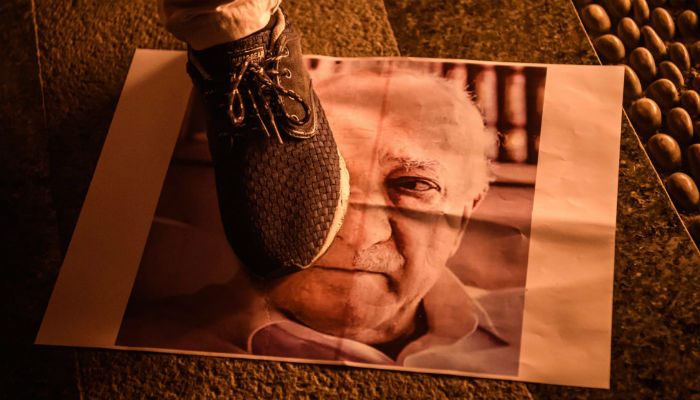Turkey’s crackdown on supporters of Fethullah Gülen, a Turkish-Islamic scholar accused by Ankara of masterminding July’s coup attempt, is being felt by the Turkish diaspora across Europe, according to a story in the Brussels-based news portal, Politico, on Monday.
Turks living in Germany, Belgium, the Netherlands, France and Switzerland who have links to the faith-based Gülen movement say they are being threatened and intimidated, Politico reported.
“Many of us received death threats,” said Ercan Karakoyun, head of the Berlin-based Stiftung Dialog und Bildung, one of the main Gülen think tanks in Europe. “I have reported six death threats to the police, and I know many people who have done the same. I am in constant touch with the police.”
One example cited by Gülen supporters in Europe came from Ozan Ceyhun, a Turkish-born former German MEP, who wrote on Twitter after the putsch: “Gülenists in Germany will have many sleepless nights. We owe that to our martyrs.”
When contacted by Politico, Ceyhun declined to comment on the tweet but said he had long believed “that the Gülen movement is a dangerous and misanthropic terrorist organization.” That’s also the view of Turkey’s President Recep Tayyip Erdoğan who accuses the movement of masterminding a corruption scandal that went public in late 2013 targeting officials with links to the Erdoğan’s Justice and Development Party (AK Party) as well as last month’s failed coup attempt.
The Turkish government and President Erdoğan have designated the Gülen movement, inspired by Gülen and runs charities, schools and businesses across the world, as a terrorist organization and has launched a widespread crackdown on suspected members since the failed coup.
Cultural centers, schools, associations and shops linked to the Gülen movement have reported insults on social networks, death threats, arson attacks on their cars and stones thrown at their premises. There have also been calls to boycott shops owned by Gülen’s supporters and some parents have withdrawn their children from schools run by the Gülen network.
With millions of followers and schools in 140 countries, including across Europe and Africa, Gülen heads one of the world’s most prominent and influential Islamic movements, according to Politico. The group describes itself as an umbrella nonprofit organization — Hizmet means “service” — which promotes altruism and religious and cultural dialog. Many supporters donate a small percentage of their income to groups linked to the movement.
Hizmet expanded to Europe about 30 years ago, particularly Germany, which has the largest Turkish community on the Continent.
There are no official statistics on the size of the Gülen movement in Europe. Karakoyun said Germany is home to approximately 100,000 supporters of Gülen, with about 150 affiliated tutoring centers, 30 schools and 12 dialogue centers, many of them financed via donations.
In Belgium, experts and social workers say there are fewer than 10 Gülen-linked schools, including in Brussels, Charleroi and Liège. France has at least two Gülen affiliated schools in Villeneuve-Saint-Georges near Paris and Strasbourg, according to news reports.
The Gülen-linked community in Belgium is now the target of “very serious” threats, says professor Erkan Toğuşlu. “People here are scared.”
The movement’s stated purpose is to focus on Muslim communities’ difficulties with integration in Europe, and to “take initiatives to be useful to society through education and dialogue, and develop sociocultural programs which promote mutual understanding and togetherness,” said Toğuşlu, the coordinator of the Fethullah Gülen chair for intercultural studies at the University of Leuven in Belgium.
“The young generation, including Muslims and children of immigrants, need bearings,” he said, adding that the Gülen chair focused on responses to radicalization and other problems facing Muslims living in Europe. Its fields of research include Muslim entrepreneurship, religious identity for young people, the role of Muslim women, and inter-religious dialogue. One recent conference was on the subject of “Sport and Islam.”
But Gülen followers in Belgium are now the target of “very serious” threats, said the professor, adding: “People here are scared.”


